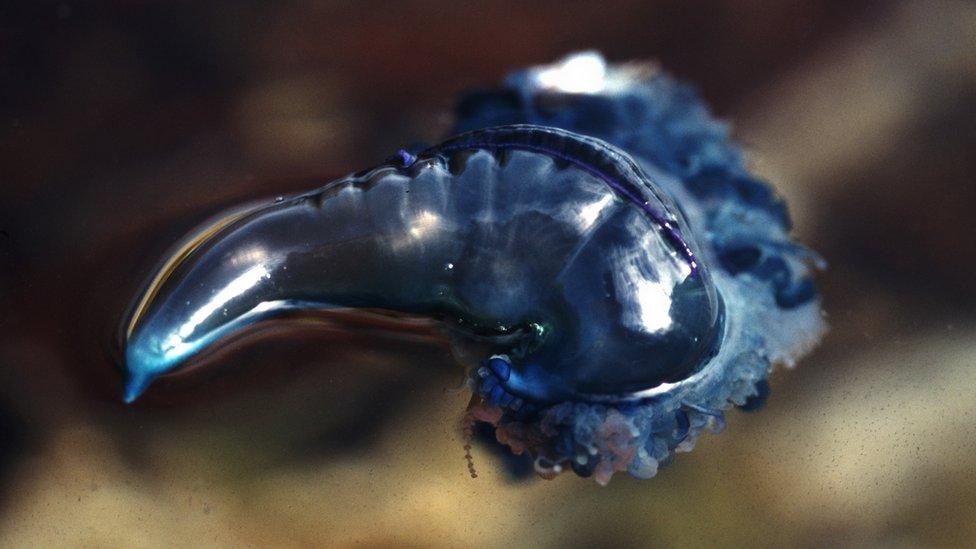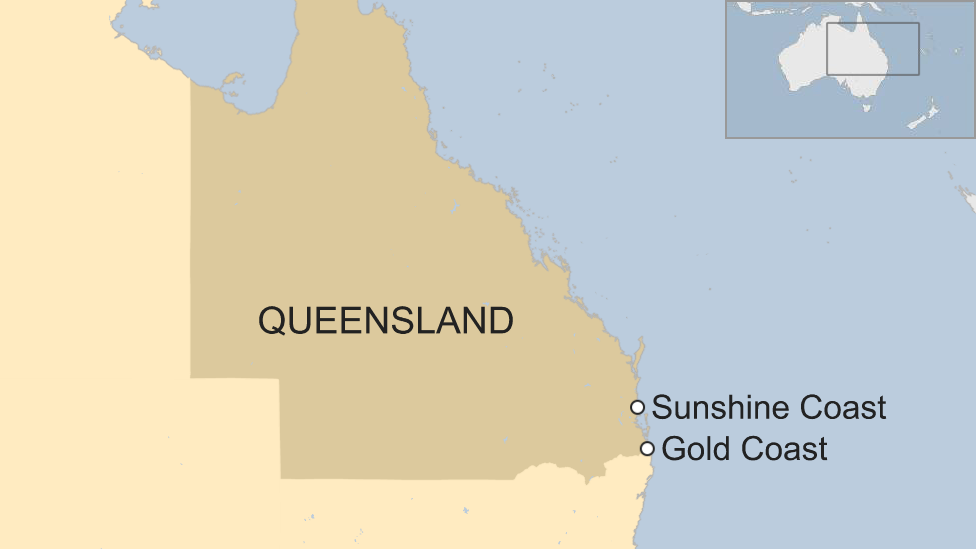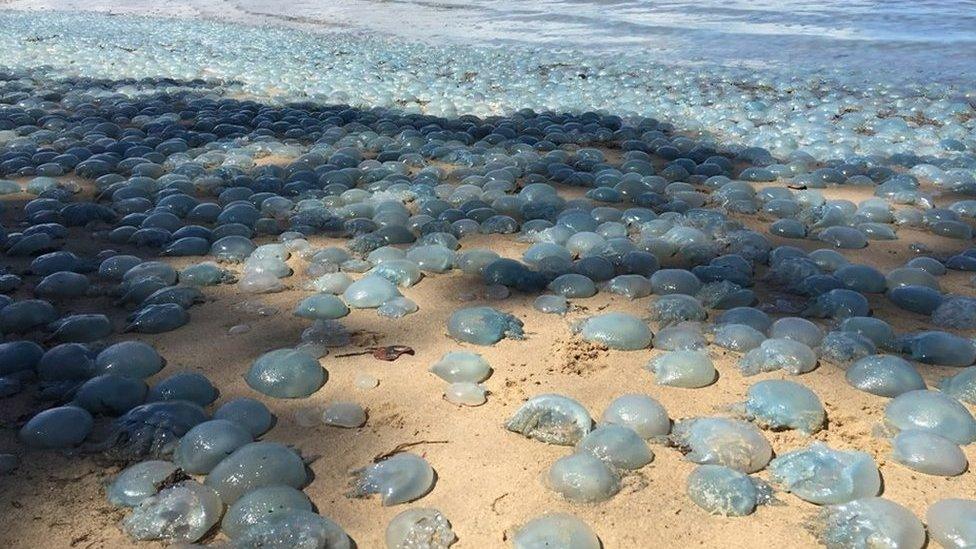Bluebottle: Thousands of Queensland beachgoers stung
- Published

Bluebottles (Physalia utriculus) have painful stings
Vast numbers of bluebottle sea creatures have been pushed ashore in Queensland, Australia, stinging thousands of people and forcing the closure of swim spots.
Surf Life Saving Queensland said over 2,600 people received treatment at the weekend. Bluebottle stings are painful but typically not life-threatening.
Unusually strong winds pushed colonies of the creatures towards beaches.
About 13,000 stings were recorded in the past week.
That's three times more than in the corresponding period last year.
Most incidents took place in Queensland's heavily populated Gold Coast and Sunshine Coast regions.

Bluebottle (Physalia utriculus) colonies appear like blue-tinged sacs which measure up to 15cm (6 inches) long. People can be stung in the water or on sand.
The bluebottle is also referred to as the Indo-Pacific Portuguese man o' war and is a related, but distinct species to those found around the Atlantic. They are not "true" jellyfish, but belong to a group of organisms known as siphonophores.
The stings are typically mild and can be treated with ice or hot water, however some people had required treatment by paramedics at the weekend, Surf Life Saving Queensland (SLSQ) said. The number of those cases was not recorded.
The activity forced the closure of busy beaches.
Allow X content?
This article contains content provided by X. We ask for your permission before anything is loaded, as they may be using cookies and other technologies. You may want to read X’s cookie policy, external and privacy policy, external before accepting. To view this content choose ‘accept and continue’.
Is this uncommon?
Bluebottles are often seen on Australia's east coast during summer.
But a SLSQ spokesman described the latest influx as an "epidemic", while some local media outlets labelled it an "invasion".
Dr Lisa-Ann Gershwin, an expert from Australian Marine Stinger Advisory Services, agreed it was unusual to see gatherings in such numbers.
She said "a really weird run" of strong winds and heat spells had brought bluebottles and other species closer to shore.
But she added that given those unusual weather conditions, the number of bluebottles should be considered "not abnormal".
The species is most commonly found in deeper seas, but can be moved easily because it has a "sail" crest on its back.
"A bluebottle has that sail that sticks up - so the wind grabs the sail and drives them ashore," Dr Gershwin told the BBC.
- Published3 February 2017
